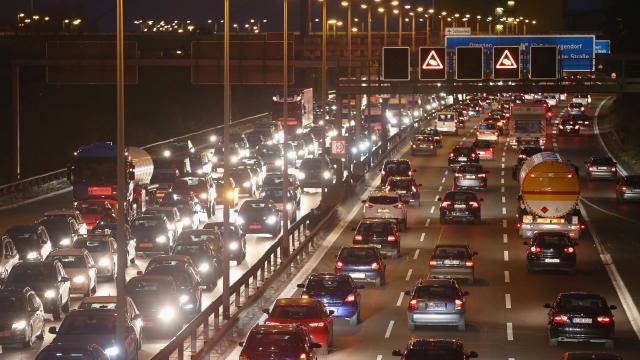Europe is currently bracing for a scorching heat wave that’s started this week. Temperatures are expected to hit 43 degrees Celsius and government officials are taking extra safety precautions. Germany, in particular, has imposed temporary speed limits on the Autobahn and other roads.
It’s not out of concern for the cars, by the way. It’s the road. Apparently, there is fear that parts of the highway could buckle in the heat, which is dangerous and could cause accidents. The German paper Die Welt reports that older sections of the road that have been built with concrete pavement can “blow up.” Ah! Great.
When you combine that effect with a car going 193km/h or more, it’s a recipe for trouble.
The transport ministry of the German state Saxony-Anhalt has set temporary speed limits of 100 km/h or 120 km/h on stretches of the highway, as noted in the Associated Press.
English-language German outlet, The Local, added that:
Several sections of the A9 and A38 in the south of eastern German state Saxony-Anhalt are subject to speed limits until further notice, according to the head of the state road construction authority, Uwe Langkammer.
The A9 between the Schkeuditzer Kreuz and Halle is affected. A limit of 120 km/h has been put in place there.
A limit of 100 km/h has been set for the A9 towards Munich between Naumburg and Droyßig as well as around Weißenfels.
On the A38, motorists have to drive slower in both directions between Merseburg-Süd and Merseburg-Nord as well as towards Leipzig between Lützen and the border to Saxony.
The heat wave is due to a phenomenon called rex block, which has to do with high and low pressure zones and messing with the jet stream, as we explain:
The pattern is characterised by areas of high and low pressure sitting near each other and contorting the river of fast-flowing air from known as the jet stream. In this case, high pressure over Greenland and a strong low pressure system over the North Atlantic will form a race track for the jet stream to cruise through.
The jet stream will dip south of the low pressure before taking a sharp turn northward and continuing west. That will cut off Europe from cooler air to the north and allow hot air to climb north from Africa.
An intense heat wave that hit Europe in 2003 killed nearly 70,000 people. So it’s no surprise that the continent is taking additional measures to keep everyone safe.
